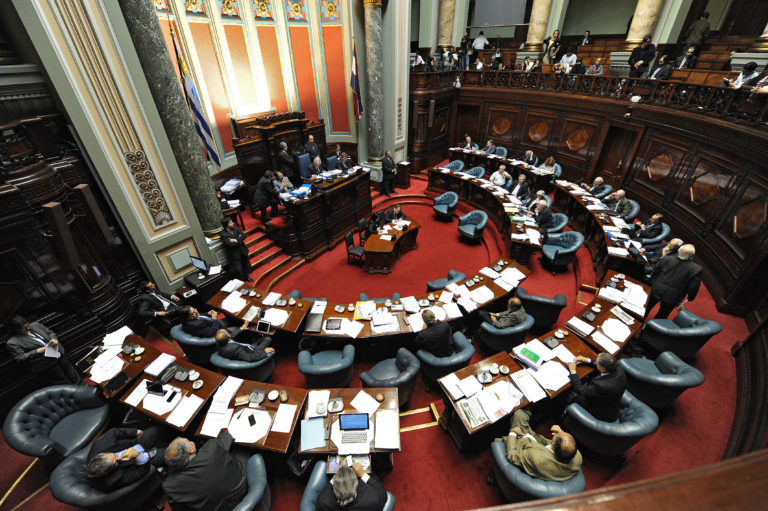(AMARC/IFEX) – AMARC is celebrating the Uruguayan government’s approval of licences for 38 community radio stations. This includes the licencing of several historic community-based stations that have been broadcasting without authorisation due to the lack of an adequate legal framework. AMARC also welcomes the application of open and transparent procedures for the awarding of new […]
(AMARC/IFEX) – AMARC is celebrating the Uruguayan government’s approval of licences for 38 community radio stations. This includes the licencing of several historic community-based stations that have been broadcasting without authorisation due to the lack of an adequate legal framework. AMARC also welcomes the application of open and transparent procedures for the awarding of new commercial broadcasting licences and expresses its satisfaction with the inclusion of citizen participation mechanisms throughout the process.
The new licences for community radio stations were were signed on 24 October 2008, following the December 2007 approval of the Community Broadcasting Law and on the eve of the legal deadline established by recent Uruguayan legislation that prevents governments from granting new a year before national elections are held. Numerous freedom of expression organisations have pointed to the law as an example of democratic legislation at the regional level.
In the licencing process, the government used the evaluations carried out by the Honourary Advisory Council for Commercial Broadcasting (Consejo Honorario Asesor de Radiodifusión Comercial, CHARC), an independent agency made up of various civil society organisations, including representatives from the community broadcasting movement, private universities and the national university (Universidad de la República). Government bodies have a minority representation on the council.
Along with the community radio stations that received licences, 133 applications were refused for not meeting the requirements and objectives that the Community Broadcasting Law establishes for these services. AMARC appreciates that the new law allows for a clear differentiation between new stations that are authentically community radio stations and those that are not.
CHARC is still analysing more than 200 applications that were voluntarily presented based on a survey established by the law, which has the objective of legalising the many radio stations that are already operating throughout the country.
Also on 24 October, the government assigned a frequency to the Education and Culture Ministry for an analog television station that could be used by civil society organisations and unions. In addition, three new commercial radio stations were granted licences using a transparent and participatory process that involved input from the public in the locations where these stations will offer their services.
AMARC celebrates the fact that for the first time, Uruguay has used a competitive, non-discriminatory system to grant licences for commercial broadcasting, thus giving equal access to all interested parties
The Independent Honourary Advisory Committee (Comisión Honoraria Asesora Independiente, CHAI), a committee similar to CHARC but which is open to representatives of the broadcasters’ trade associations evaluated the proposals that were presented and made recommendations to the government regarding those that met the established criteria. The CHAI recommendations were accepted by the government.
For further information on the on the Community Broadcasting Law see: http://ifex.org/en/content/view/full/87839


